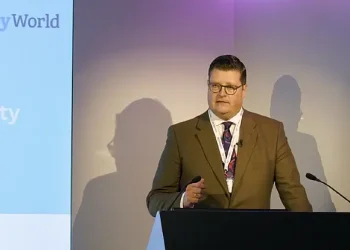Ofsted has released a pivotal research report, conducted by Research in Practice at the National Children’s Bureau, examining vulnerability in children within its inspection framework.
This study, involving over 400 participants, aims to refine Ofsted’s approach to supporting vulnerable learners across England.
Understanding Vulnerability in Education
The recent research commissioned by Ofsted marks a significant step towards enhancing the understanding of vulnerability among children and learners.
By engaging with over 400 stakeholders from various sectors, including education and social care, the study provides a comprehensive view of how vulnerability can be perceived as a dynamic state rather than a fixed trait.
This conceptual shift is crucial for professionals working with children and families across the UK. It encourages critical reflection and adaptation of practices to better support vulnerable individuals.
The findings are expected to influence future inspection frameworks and policies affecting schools, early years settings, and social care providers.
Implications for Schools and Families
- Inspections will increasingly consider the nuanced nature of vulnerability.
- Potentially more tailored support for disadvantaged children.
- Schools may need to adapt practices to meet evolving criteria focused on safeguarding.
- Parents could see improved attention on their child’s needs during inspections.
- Enhanced access to services for children facing disadvantage or risk.
A Bigger Picture
This report builds upon Ofsted’s broader reforms, such as updates to the Education Inspection Framework (EIF) introduced in 2019 and revised in 2023. These reforms emphasize safeguarding and focus on the experiences of disadvantaged learners.
The research aligns with commitments made after significant events like the Ofsted Big Listen and responses following Ruth Perry’s inquest.
The Role of Industry Leaders
Sir Martyn Oliver, Ofsted’s Chief Inspector, expressed gratitude for this research’s insights into developing approaches related to vulnerability. He said:
“I am grateful to Research in Practice at the National Children’s Bureau for carrying out this research for us. It provides useful insight as we continue to develop our work related to vulnerability in children and learners.
I am committed to putting disadvantaged and vulnerable children at the heart of everything we do.”
Dez Holmes from Research in Practice highlighted the importance of critical thinking supported by this project. She said,
“We are hugely grateful to over 500 colleagues across the country for contributing to this fascinating project. The rich expertise of early years, education, further education and social care professionals has been invaluable in helping us at Research in Practice to think through what vulnerability means for children, young people and families.
We appreciate the opportunity Ofsted provided. It is rewarding to do work that is explicitly conceptual, whilst potentially being able to influence practice and policy.
The work colleagues do across the education and social care sector is as vital as it is complex. Vulnerabilities are varied and affect everyone in different ways. We are delighted to have been able to support critical thinking and reflection.”
Additional Reading
The Takeaway
This research represents a transformative approach towards understanding vulnerability within educational inspections. By recognizing it as a dynamic state, Ofsted aims to provide more responsive support systems for vulnerable children across England.
This initiative not only enhances inspection processes but also fosters collaboration between education sectors and social care providers for better outcomes.
Discover more of More of Todays Top Breaking Government News Stories!
Sources: UK Government, Ofsted, and National Children’s Bureau.
Prepared by Ivan Alexander Golden, Founder of THX News™, an independent news organization delivering timely insights from global official sources. Combines AI-analyzed research with human-edited accuracy and context.









